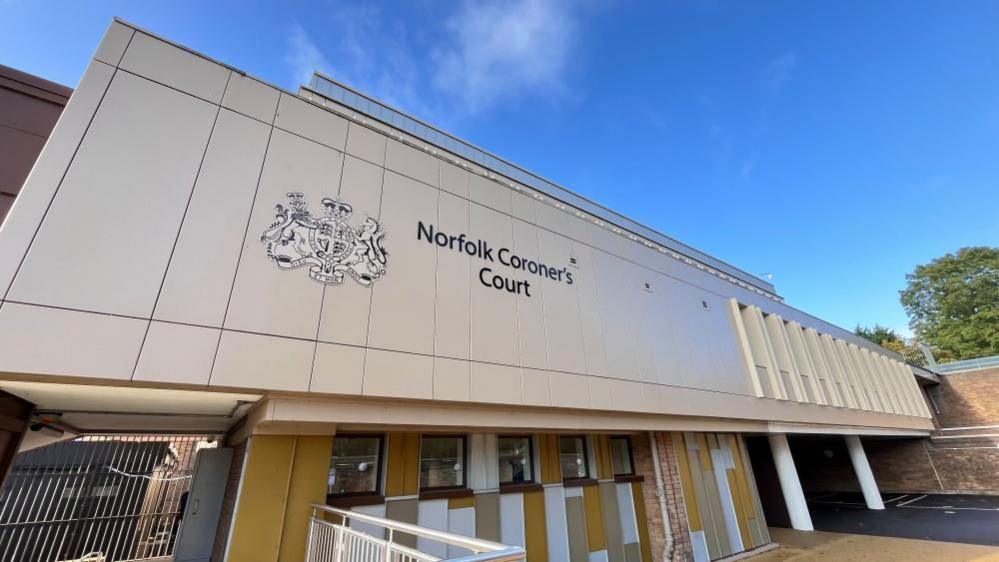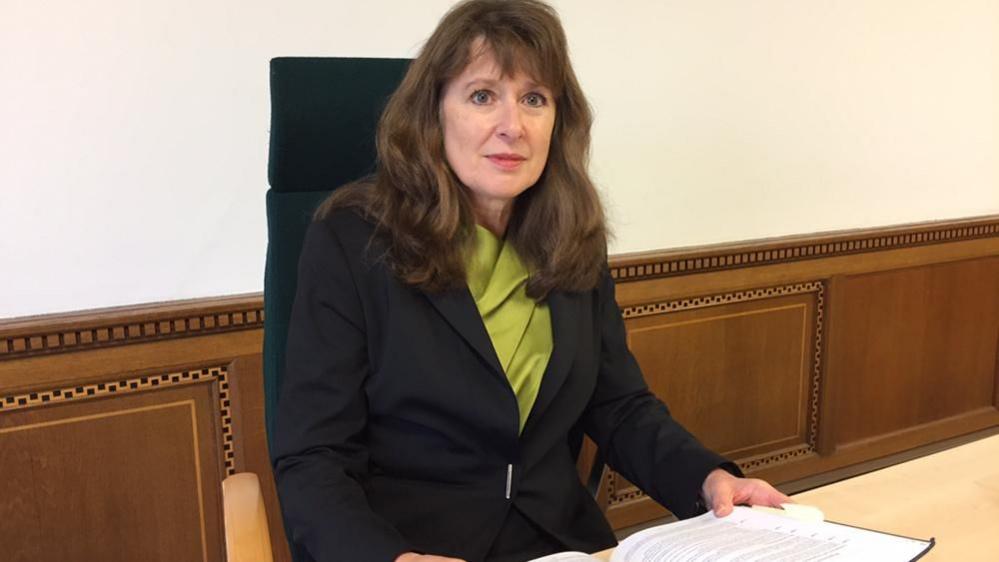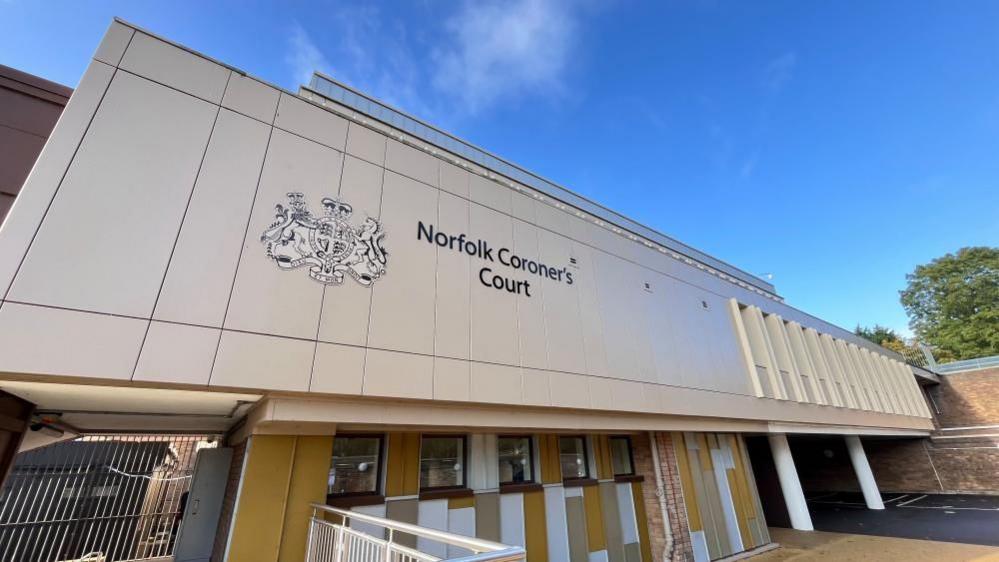Coroner says lack of beds putting patients at risk

Norfolk Coroner Jacqueline Lake said she believed action could have been taken that would have prevented Mr Taylor's death
- Published
A coroner has said action could have been taken to prevent the death of a 76-year-old man from Norfolk.
Malcolm Taylor, from Bradwell near Great Yarmouth, died after entering the water at Gorleston beach on 3 March this year. His body was discovered the next day.
Coroner Jacqueline Lake heard he was not due to be given a mental health assessment until he was allocated a bed. At the time of his death, there were 13 patients awaiting beds.
Ms Lake said: "My inquiries revealed matters giving rise to concern. In my opinion, there is a risk that future deaths could occur unless action is taken."

Coroner Jacqueline Lake has given the Department of Health and Social Care 56 days to respond to her Prevention of Future Deaths report
Anthony Deery, chief nurse at Norfolk and Suffolk Foundation Trust, said: "We have carried out an extensive review into the care which Malcolm received to help us identify any learning and where we can provide safer and better care."
At the inquest into his death last month, it was heard Mr Taylor was in a low mood following the death of his wife in 2022 and was referred to Norfolk's adult social services and mental health team four months before his death.
He had not been taking his medication and was experiencing psychotic episodes and had thoughts of self-harm, it was heard.
However, a mental health bed had not been found for Mr Taylor.
Ms Lake said in a Prevention of Future Deaths report addressed to the Department of Health and Social Care (DHSC): "In my opinion, action should be taken to prevent future deaths, and I believe you [and/or your organisation] have the power to take such action."
Mr Taylor had driven to Gorleston Beach on 3 March, having experienced suicidal thoughts, and entered the water between 22:21 GMT and 00:08 GMT the next day.
His cause of death was recorded as drowning, with ischaemic heart disease, cardiomegaly, and liver fibrosis listed as underlying health conditions that contributed as a secondary cause of death.
'Significant pressures'
Ms Lake said despite hearing evidence from NSFT about action taken to increase the number of beds available and so prevent future deaths, she added: "Despite these steps, there remain insufficient beds available to meet patient need.
"At the time of Mr Taylor's death, there were 13 patients awaiting beds. At the time of the inquest, there were seven patients awaiting beds. There are peaks and lows with these numbers on a daily basis, but overall there remains a shortage of beds."
Ms Lake said she believed it was a national problem, not limited to Norfolk and Suffolk NHS Trust.
Mr Deery at the NSFT said: "Since Malcom's sad death, additional morning safety huddle meetings now take place so that staff can discuss patients waiting for a bed, escalate cases where necessary, and identify alternatives within the wider system.
"We have also increased the frequency of the patient flow meetings we hold with our system partners so that we can make sure patients are receiving care in the most appropriate place to meet their needs.
"It was clear that there were also significant pressures on mental health beds both locally and nationally at the time of Malcolm's sad death."
He said the trust will now review the coroner's findings to see if any steps could be taken to prevent a similar incident.
The DHSC must respond to the coroner by 23 December, setting out details of action taken or proposed within a timetable, or explain why no action had been taken.
Get in touch
Do you have a story suggestion for Norfolk?
Follow Norfolk news on BBC Sounds, Facebook, external, Instagram, external and X, external.
Related topics
- Published16 April 2024

- Published21 October 2024
